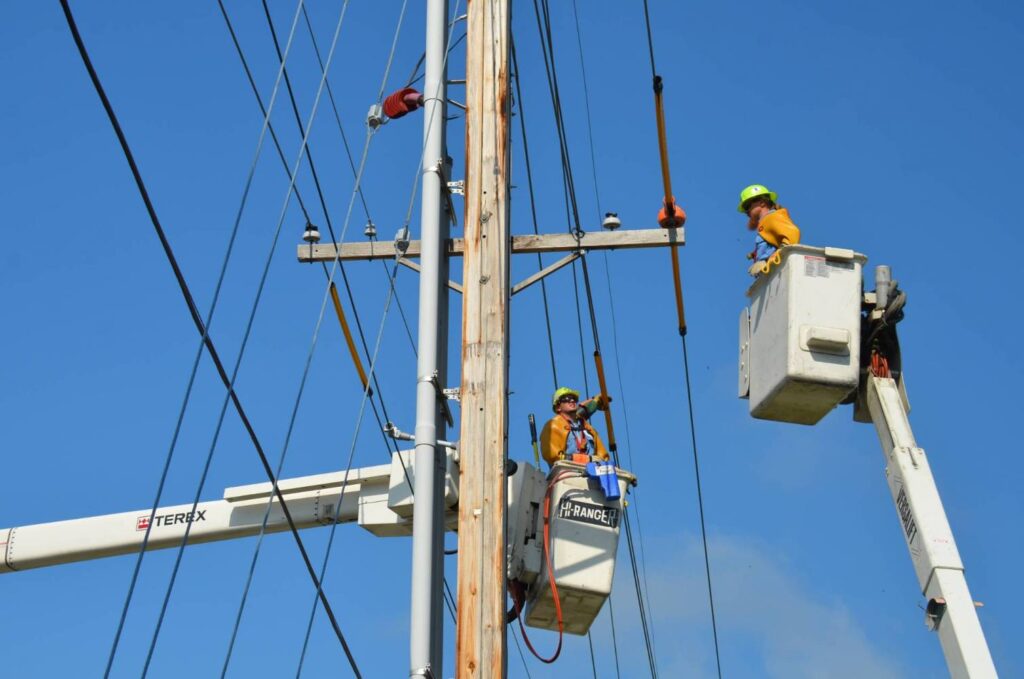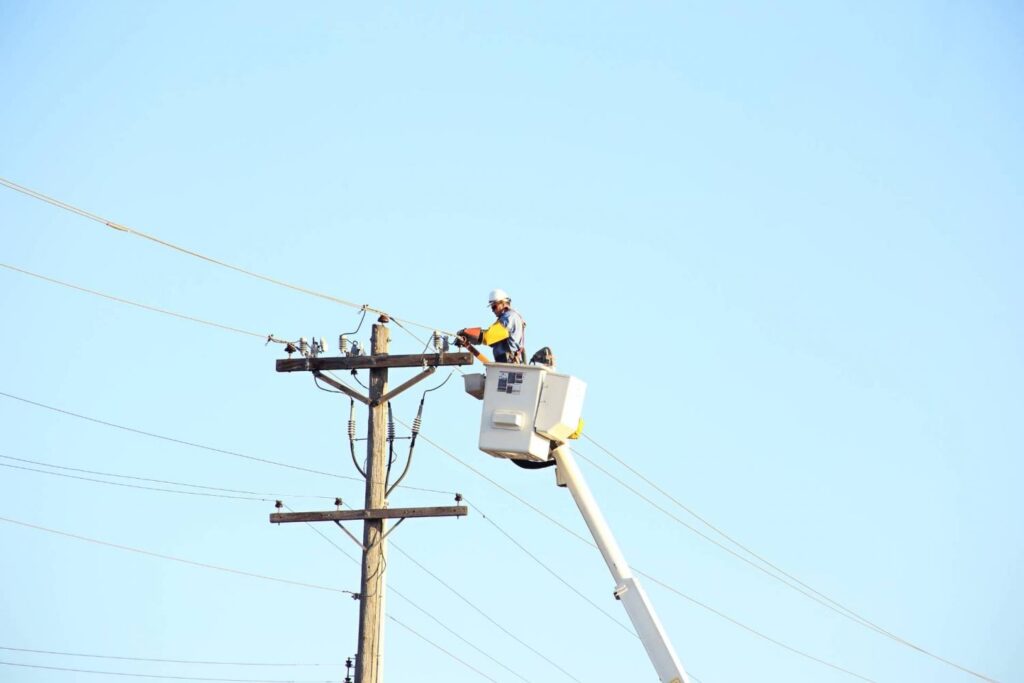Thank a Lineworker Day
Linemen are the unsung heroes who do a dangerous job that keeps your phone lines, cable lines and electrical lines running. They risk life and limb to keep us all safe. Did you know that April 13 is Thank a Lineworker Day? If you’re not sure what a lineworker is or why you should thank one, read on to learn more about this important job.
What Is a Lineworker?
Some of us who are a certain age can remember Glenn Campbell’s blockbuster 1968 hit about a lineman in Wichita:
I hear you singin’ in the wire,
I can hear you through the whine
And the Wichita lineman
Is still on the line
What was this lineman doing up on the wire?
A lineworker is also known as a lineman, a linesman, a power line technician, a utility line worker or a power line worker. Lineworkers build, assemble and maintain electric power transmission lines, electric distribution lines and cable, internet and telephone lines.

What Does a Lineman Do?
Most lineworkers focus on:
- Installing and repairing the overhead lines of cable systems, phone lines, and street lights.
- Installing and maintaining conductors.
- Restoring service after an outage.
- Replacing fallen power lines after a storm.
- Maintaining the wooden power poles.
Linemen are actively involved in disaster relief efforts. They are among the first workers to arrive when there’s a natural disaster.
The Profession In the Early Days
The lineman’s profession began in the 1840s when the telegraph was the fastest mode of communication. As the use of telegraphs spread across the country, the telegraph companies needed to find room for more lines.
Instead of stringing the lines between trees, the telegraph companies decided to build wooden poles to hold the wires. The men who went out set wooden poles and strung the wires became known as “linemen.”
In the late 1800s, the telephone took over as the primary form of communication. The linemen now used the same poles to hold telephone wires. In later years, the electrification of most major metropolitan areas led to the widespread employment of linemen.
In those days, the lineworker’s job was particularly dangerous. There were few safety measures in place that fully protected these workers from shocks, fire or falling accidents.
Linemen In the Twentieth Century
As the twentieth century expanded the use of electricity everywhere, linemen became even more important. The demand for their skill was high. Many linemen found themselves traveling from city to city to help establish communication and telephone lines throughout the country.
Although safety measures are much stricter now than they were in the past, this type of work remains dangerous. As Paul Mauldin writes inT&D Magazine,
“Utility line work is in the top 10 of the most dangerous jobs in America. Around 30 to 50 workers in every 100,000 are killed on the job every year. Many others suffer a non-fatal loss of limbs from electrical burns and mechanical trauma. That’s more than twice the fatality rate of police officers and firemen.”
Linemen are out there every day, climbing ladders or using lift buckets to reach your power lines. They keep your lights on, your water hot, your television playing and your phone connected to the world.

What Kind of Training Do Linemen Get?
Most linemen complete training through a union apprenticeship with the International Brotherhood of Electrical Workers or IBEW. The IBEW apprenticeship requires four years of hands-on training and classroom instruction. After graduating from the program, a graduate becomes a journeyman lineman who can work on almost any system. After several years of further training and experience, journeymen can become master linemen. Training is also available through the National Association of Journeymen Linemen.
Don’t Forget to Thank a Lineworker
On April 13, spare a thought for those workers up in the sky, in the trees or on those tall wooden poles. They’re doing a tough, dangerous job that most of us don’t know much about. If you see a lineworker, say thank you.